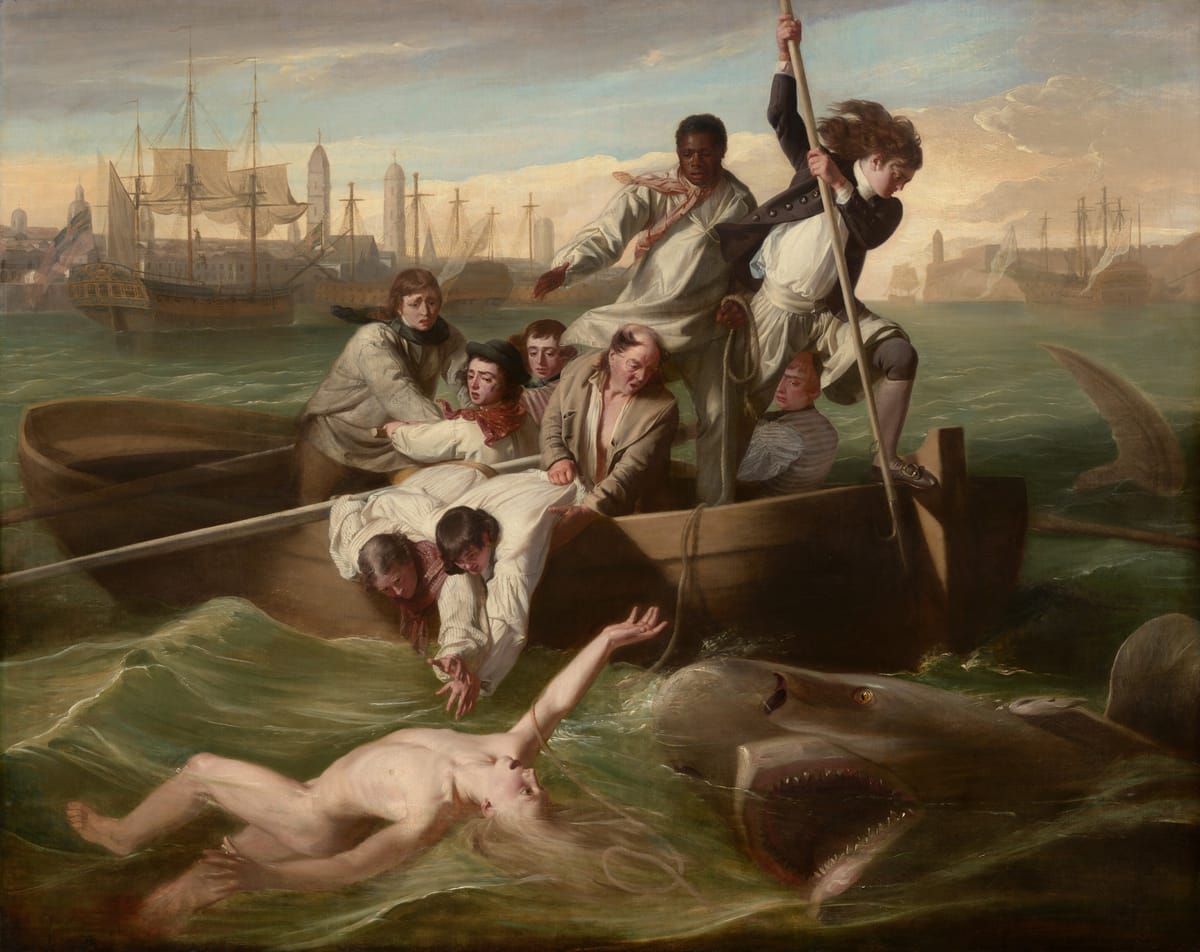Standing Together: The Group Playbook

A while ago, we revealed that Dungeon World 2 (DW2) will have a Group Playbook, with its own mechanics and moves. We also introduced Kinship, a group resource gained and spent over time to work together in meaningful ways.
Now I'll be diving into the details of our group playbook—The Adventuring Party! This is the default group playbook, but we have several ideas for additional ones to add in the future. Some of the details below might be consistent across all group playbooks, and some might be specific to this one.
This post is longer than most, and many things here directly relate to others, so buckle up!
Sharing Resources
“All for one and one for all”, as they say. The group playbook has a few different resources that you all track together.
- Kinship represents how in-sync and cooperative the group is feeling as a whole. You gain and spend it fairly frequently. It starts at 0 and can go up as high as you want.
- Wealth is the amount of spendable money you have. A sack of gold might be Wealth, but you probably need to sell a magic item for it to become Wealth. You usually spend it when you Relax Together to enjoy yourselves, pay for expenses, and restock on supplies. It starts at 0, but can fluctuate between -2 and +2.
- Progress is basically "Group XP", but rather than being a single amount, it's split between three Paths of advancement: Exploration, Heroism, and Teamwork. Each Path has its own End of Session question that rewards its own Progress. For example, if you "uncovered a new location, creature, mystery, or secret" you mark 1 Progress along the Exploration Path. When you have 5 Progress on a single Path, you reset to 0 and gain an Advancement from that Path's advanced moves.
The group playbook also has Burdens, which we detailed last week, but I'll restate here.
- Bickering — When you Assist you must spend 2 Kinship (instead of 1) to benefit another PC
- Hopeless — At the End of Session, the GM will reveal one twist to turn the answer to a question from a “yes” into a “no”
- Hunted — The GM may always ask “who keeps watch?”, even when you’re supposedly safe
Burdens work like conditions, except they affect the entire group instead of just one PC, and are a bit more difficult to get rid of. While a condition penalizes rolls with its associated stat, each Burden has its own unique effect.
Burdens can be dealt with by Redressing them, which is basically dealing with them in the fiction. Conditions can also be handled this way, or by the Comfort or Support move detailed later in this post.
That's all the group resources. It looks like a lot when all listed here, but Kinship is the only one that is a regular factor in play. The rest typically come up once per session or less, so this isn't as much to track as it may seem.
Working Together
The foundation of the adventuring party is active cooperation. So what does it look like when PCs work together?
Assist
When you help a companion, you may spend 1 Kinship for them to choose one of the following for their next move:
- They roll with advantage
- The move accomplishes more than normal
If a second PC Assists at the same time (spending 1 extra Kinship), the PC gets both benefits.
This is the main way to spend Kinship, and we want the group to have a decent amount of it at all times. Managing Kinship is interesting, but fully running out isn't, so it should be pretty hard to do.
"The move accomplishes more than normal" is intentionally open-ended to suit the context of the current situation and PC intent, though the GM has the final say. Maybe being Assisted while Skulking into a party lets you sneak the rest of the PCs in with you. Maybe being Assisted while Unearthing Secrets means you decide what you find instead of the GM.
Talking Things Out
Cooperating in shared goals and objectives isn't the only part of an adventuring group; there's also the relationships and dynamics that they develop with each other, which we have chosen to represent with a new version of Bonds.
In Dungeon World (DW1), bonds were amazing in concept but a bit unwieldy in practice, which is why alternative rules like Flags were fairly commonplace. Aiding or Interfering with someone often felt too risky unless you had 2-3 bonds with them, but managing multiple bonds with the same PC often felt more confusing than deep.
In DW2 we want Bonds to start off easy to manage, grow as relationships develop, and focus on character dynamics, conversation, and emotion.
- Each PC starts with a single Bond with another PC that represents their shared relationship or history.
- As events from the PCs' pasts are explored and resolved, they create more Bonds with each other.
- Unlike in DW1, there are no benefits to having multiple Bonds with the same PC. You're encouraged to have 1 per fellow PC, and if a Bond no longer fits or matters you can rewrite it.
- Like in DW1, bonds are one-directional—just because the Wizard has a Bond with the Fighter, it doesn't mean the Fighter automatically gets one with the Wizard.
- Bonds are not tied to specific classes, but instead are open-ended. It's far easier to come up with interesting Bonds when you only need to create one at the start, and we have several class-neutral examples.
- When you Read Someone you have a Bond with, or Comfort or Support them, that will be a bit easier. You can also rely on a relevant Bond to Resist a consequence more easily.
We hope this version of Bonds keeps them central to the group while mostly staying in the background—always present and important, but never impeding or restricting.
That last point above mentions a new move we're revealing now.
Comfort or Support
When you comfort, heal, or support a companion, describe how you do it, answer the following questions, and then roll with +1 for each “yes”.
- Do you have a bond with them?
- Do they have a bond with you?
- Does this action relate to any of your backstory facets or theirs?
On a 7+ your help works, and your companion crosses one marked condition, plus another if they open up about their feelings. On a 10+, you also either add 1 Kinship to the pool or cross a marked condition yourself. On a 6-, you either spend 1 Kinship, inflict a condition on them, or mark a condition yourself.
While Conditions and Burdens can also be Redressed in the narrative, Comfort or Support is the main recovery move in DW2. Currently, even a Cleric's divine healing modifies Comfort or Support rather than standing alone as a separate move. It's not without some risk, as words, deeds, or treatment can backfire, but the defined PC-chosen result of a 6- keeps it manageable.
So what in the world is a "backstory facet"?
Confronting Your Pasts
We spent some time looking over Alignments from DW1, Drives from many other DW-adjacent games, and similar character-focused motivation mechanics. When the right Drive meets the right player and character, compelling decisions and drama are created. However, these mechanics typically reward 1 XP per session or similar, which isn't much. I think that having a motivation written down as a concrete jumping-off point for character decisions is more important than the reward itself. For a couple of weeks, the DW2 Pre-Alpha had multiple, specific Drives for each Class, but they felt very ancillary and, in the end, they didn’t work out.
So we had a “kill your darlings” moment and removed Alignments (and our version of Drives) and replaced them with Backstories and their Facets.
- Whether a PC was a quiet farmer, a thrill-seeking criminal, a starving prisoner, or an educated scholar, they're an adventurer now. Showcasing what their life was like in the past and how things changed is called their Backstory.
- When creating a PC, you don't need to detail out their entire backstory ad-nauseum. Instead, you choose a single Facet of it that you want to see narratively explored, and potentially resolved, during the game. This could be a regret you can't escape from, an enemy you hunt, or a recurring dream growing increasingly urgent.
- Each class has three suggested Facets, each with a narrative hook, some questions to answer, and example methods of resolution. They are evocative but open-ended.
- All of the Facets are thematically related to a specific Class, but not narratively restricted, so you are free to choose from other classes if you want to. For example, the Cleric's Backstory Facets are about faith and community, but none of them explicitly say that you can perform divine miracles, so a Rogue can take one if it appeals to them.
- During play the PCs Backstories often complicate the adventure, but helping each other with them through both action and emotion is part of what this game is about.
- When you resolve a facet of your backstory you not only Level Up immediately, but you create a new Bond with a PC, representing the history you now have with them.
- When you Level Up, you might unlock one additional facet of your Backstory. Your previous facet might have been resolved and this could start "act 2" of your character’s personal story, or it might still be unresolved and this might be a totally different additional thing you want to deal with from now on.
Backstories are a staple of D&D campaigns going back decades, and we hope Facets and the ways they influence characters and scenes in DW2 embody that history while being easy to start from scratch.
Finishing Things Up
The last group starting move we're talking about today is a big one, and ties into everything I talked about above.
End of Session
At the end of a session, answer the following questions as a group.
- Did we uncover a new location, creature, mystery, or secret? If so, mark 1 Progress along the Exploration Path and add 1 Kinship to the pool
- Did we stop a threat or help someone that isn't part of The Adventuring Party? If so, mark 1 Progress along the Heroism Path and add 1 Kinship to the pool
- Did we learn something new about each other or cooperate in a new way? If so, mark 1 Progress along the Teamwork Path and add 1 Kinship to the pool
Then each player answers how their character grew; choose all that apply:
- Did you grapple with a Facet of your backstory? If so, mark 1 XP
- Did you have a new conflict or connection with a companion? You may rewrite a corresponding Bond to reflect that. If you don’t, either cross 1 condition or add 1 Kinship to the pool; your choice. If you do, you get both.
- Did you take a big risk or express your capabilities in a new way? If so, mark 1 XP
This one is longer than most End of Session questions, but we think each point on there is worth keeping for this game.
There's one more big Group Move called Relax Together, but it directly relates to how Wealth, items, and equipment works in DW2, so we'll save that for Friday!
Thanks for reading
Spencer
